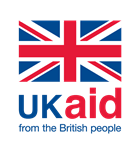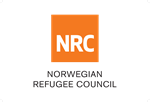
At 23, Waleed yearns to build a better future for himself and his family.
“I’ve always wanted to be an engineer, fixing cars or designing buildings,” he said.
“When I was at school, I enjoyed maths, history and geometry. But when my wheelchair broke, and my father couldn’t afford to fix it, I stopped attending classes.”
Without a wheelchair, Waleed crawled to a nearby tree each morning, where he met with friends.
“I chose to visit them early in the morning because the sun is not too hot. If I couldn’t make it, they would come to my home to check on me,” he explained.
“When my family went to visit relatives, like my sister who lives in a far district, I stayed at home and guarded the house. I couldn’t go out to watch football matches, an activity I love very much.” Waleed wanted independence but felt stuck.
With support from UKAID, DRC collaborates with partner organisations and dedicated community volunteers to reach people with critical needs. Volunteers receive training in various aspects of protection, including mobility challenges, and the kinds of support that DRC and partners offer. Volunteers are essential to raising awareness within the community and providing tailored assistance based on each person's specific needs. Waleed was provided with a new wheelchair, enabling him to move freely.
This seemingly simple act has had a profound impact on Waleed.
"My life, indeed, has changed for the better," he said.
"Now I can go far distances.”
He is able to visit his sister, attend prayers at the mosque, access basic services and even watch local football matches.
“I feel happy, and I think the situation will get better,” he shared. He plans to open a small shop to contribute to the financial well-being of his family. He believes that with continued support from the community and humanitarian organisations, challenges for persons living with disabilities can be overcome.
Waleed's story is just one example of the transformative power of small acts of support and the continued importance of projects that assist Sudan’s conflict-affected and hard-to-reach communities. It serves as a reminder of the role local communities, INGOs and donors can play in strengthening resilience even amidst Sudan’s devastating war.

